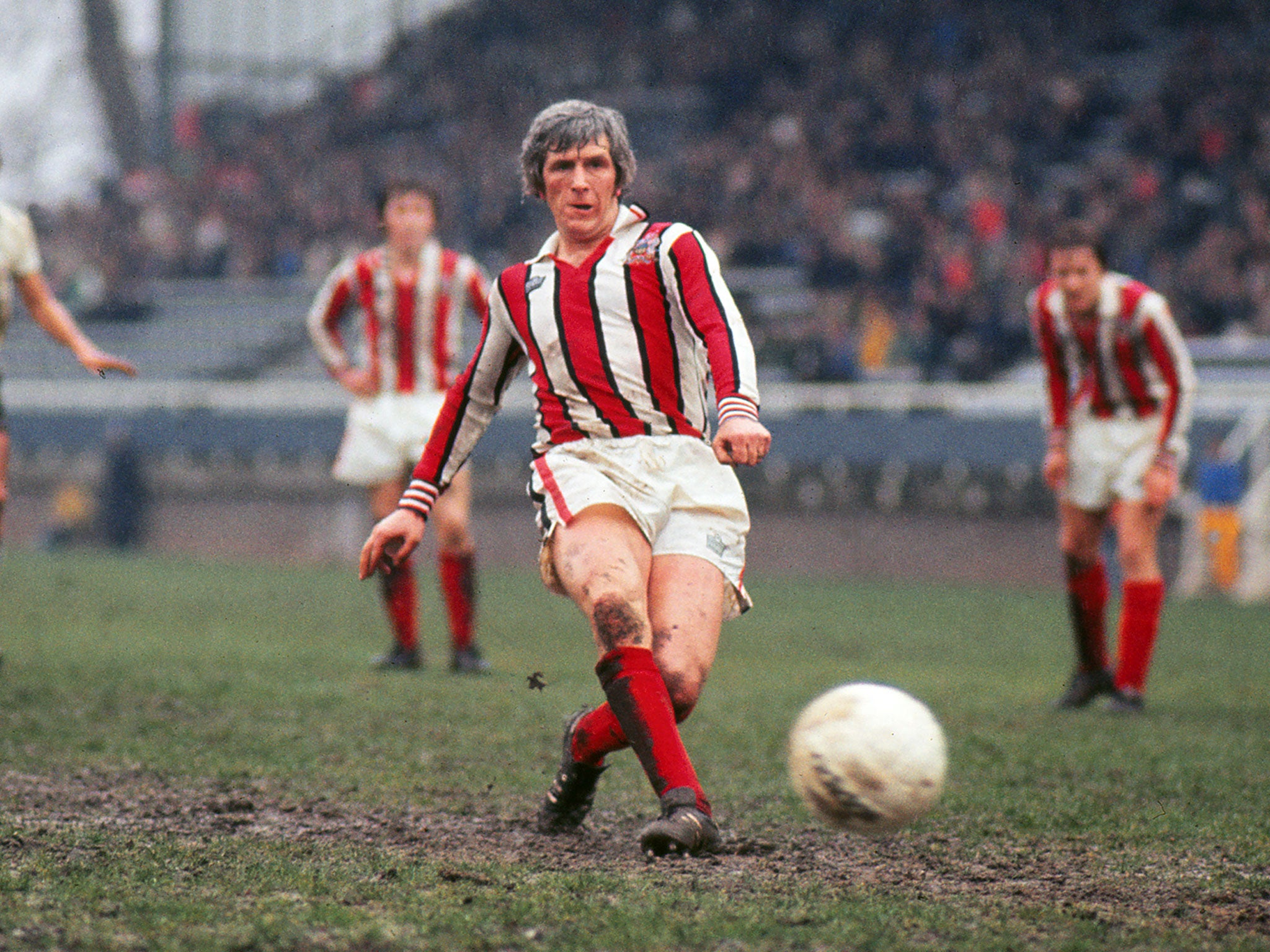Alan Woodward: Sheffield United winger who possessed a stinging shot and became the Blades’ leading post-war goalscorer

When Alan Woodward was racking up nearly a double-century of goals for Sheffield United in the decade and a half from 1964, Bramall Lane regulars viewed it as a mystery bordering on the bizarre – or even the downright scandalous – that the rampaging flankman was never capped by England.
Two appearances for the Football League was the nearest he came to a full international call-up, his rejection by his country due, it seemed, to manager Sir Alf Ramsey’s so-called “wingless wonders” policy, employed so effectively in the 1966 World Cup triumph on home soil and retained thereafter.
Yet despite this lack of wider recognition, the powerful, prolific Yorkshireman was revered by followers of his sole major English club and he remained a stirringly entertaining attacker throughout his 14-year career in the two top tiers of the domestic game.
Inevitably for such a talented performer, there were opportunities for transfers to bigger clubs, but whether he turned them down through loyalty to United or lack of driving ambition is open to question.
Woodward was a hot property from his early teens, having helped Barnsley Boys to win the English Schools Shield in 1961, shining in tandem with Jimmy Greenhoff – another extravagantly gifted future star whose failure to collect caps was incomprehensible – and playing for England at youth level.
Courted by Leeds United, Sheffield Wednesday and others, Woodward opted for the homely atmosphere of Bramall Lane, where he turned professional as a 17-year-old in September 1963. He made rapid progress, stepping up for his elite division debut at Liverpool in October 1964.
He was part of a refreshing wave of gifted youngsters brought through by manager John Harris – including forwards Mick Jones and Alan Birchenall, midfield brothers Tony and Barry Wagstaff, and defenders Len Badger and Bernard Shaw – and immediately he commanded a regular place on the Blades’ right wing, which, barring infrequent injuries, he did not relinquish until his departure.
Woodward’s most spectacular asset was an explosive shot with either foot, and he was a renowned dead-ball specialist, capable of netting directly from the corner quadrant. His deliveries from wide positions, whether steepling skywards before dropping devilishly into the danger zone or fizzing wickedly at head height, could flummox the coolest of goalkeepers and defenders; and his high-velocity runs with the ball were rendered all the more potent because he could go past his markers on either side.
A magnificent all-round athlete, he proved a more-than-capable deputy custodian in pre-substitute days, putting in five such stints and conceding only one goal in 160 minutes between the posts.
After excelling for United in two mid-table campaigns, Woodward shared the trauma of demotion in 1968 – then missed only 11 league outings over the next ten terms as the Blades climbed back to the top flight as runners-up to Leicester City in 1971, then rose to a peak of sixth place in the title race in 1975, only to suffer another relegation for finishing bottom of the pack a year later.
During those yo-yo years, Woodward was at his most compelling in conjunction with the sublimely creative midfield general Tony Currie, whose penetrative passing fashioned countless scoring chances for the predatory winger in the eight years they spent together before the Londoner left in 1976.
Both of Woodward’s outings for the Football League ended in victory over the League of Ireland – in September 1969 at Barnsley and two years on in Dublin – but they were scant consolation for the absence of caps which so incensed his home supporters.
Club-wise, though, his success was relentless. He became the Blades’ leading post-war scorer with 158 League strikes, topping the goal chart in seven seasons. Only centre-half Joe Shaw and keeper Alan Hodgkinson exceeded his record of 538 League appearances for the Yorkshiremen.
In the autumn of 1978, aged 32, Woodward dismayed United supporters by opting for a fresh start across the Atlantic with Tulsa Roughnecks, with whom his spectacular repertoire of explosive shots and soaring crosses earned him the nickname of “Boomer”.
His trademark strength and accuracy also secured him a stint with the American football side Oklahoma Thunder, for whom he was used as a specialist goal-kicker, sometimes taking part in the action for no more than two minutes in a game, but usually making his presence count.
Woodward settled in Oklahoma, later coaching, running a sports store and working for American Airlines.
Back in Sheffield, his admirers were left to ponder the notion of his former boss Harris, who once said: “Alan simply has no conception of how much talent he has.” But the final word rests with his old Bramall Lane confederate, the England international Currie, who had no doubt about his status, declaring: “Woody was the greatest I ever played with.”
IVAN PONTING
Alan Woodward, footballer: born Chapeltown, Sheffield 7 September 1946; played for Sheffield United 1963-78, Tulsa Roughnecks 1979-81; died Tulsa, Oklahoma, USA 21 May 2015.
Join our commenting forum
Join thought-provoking conversations, follow other Independent readers and see their replies
Comments